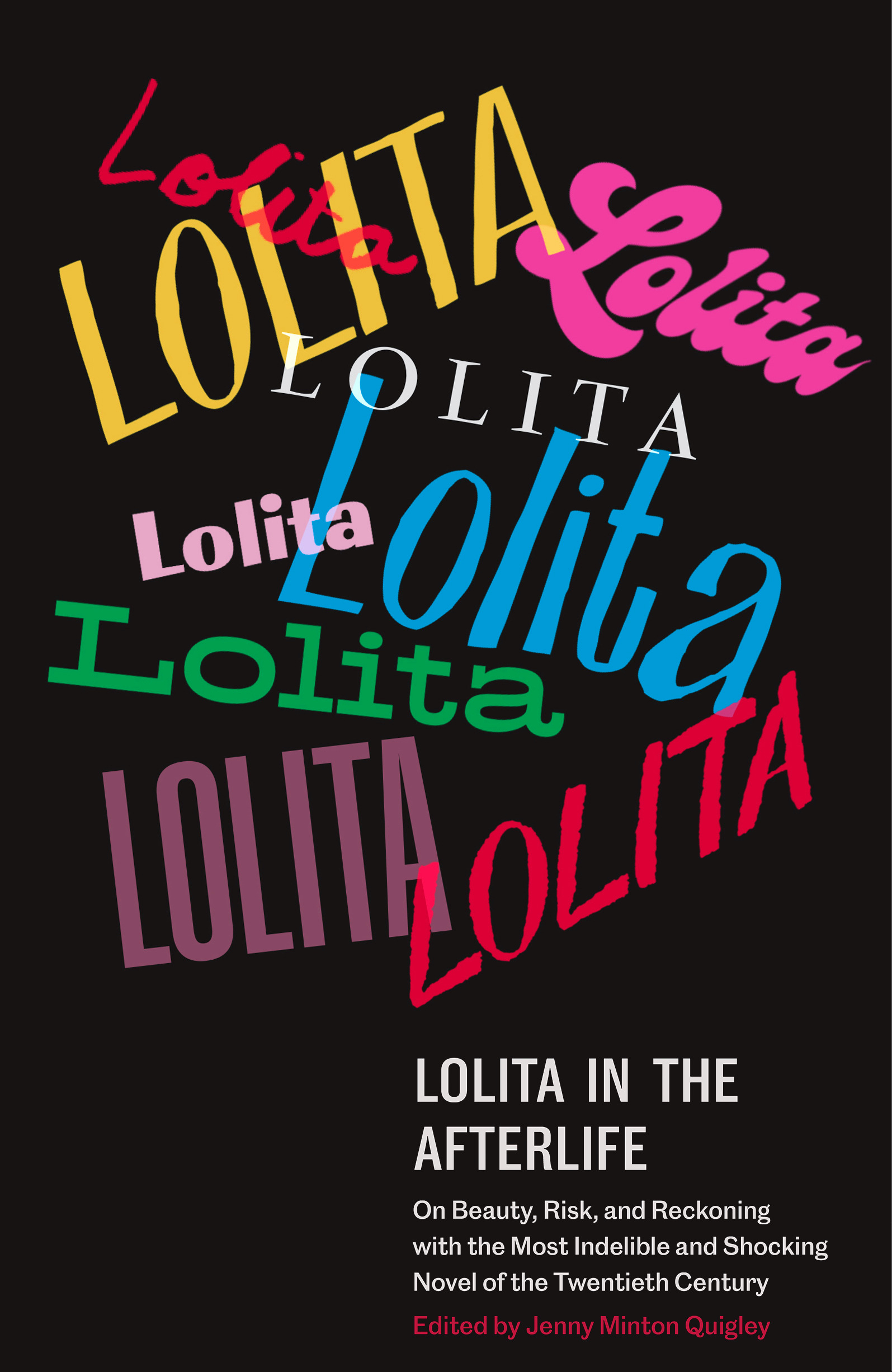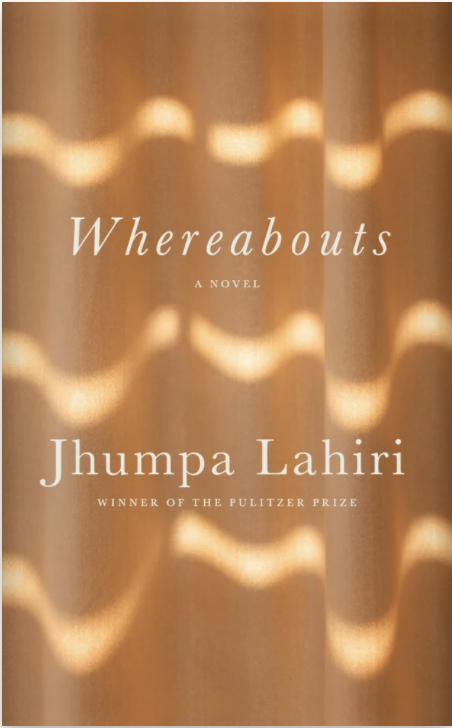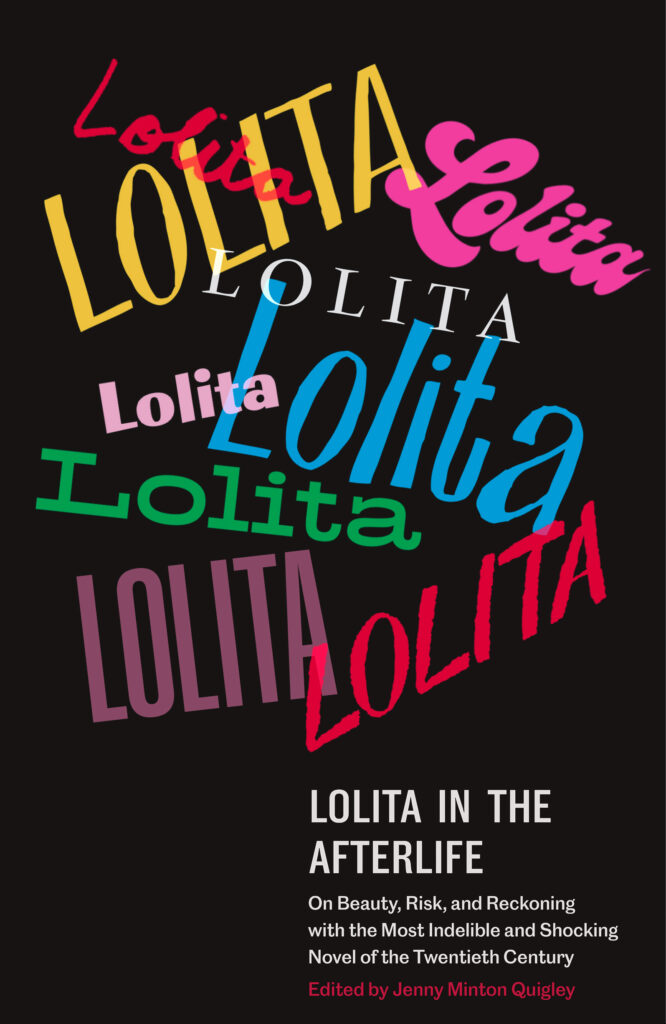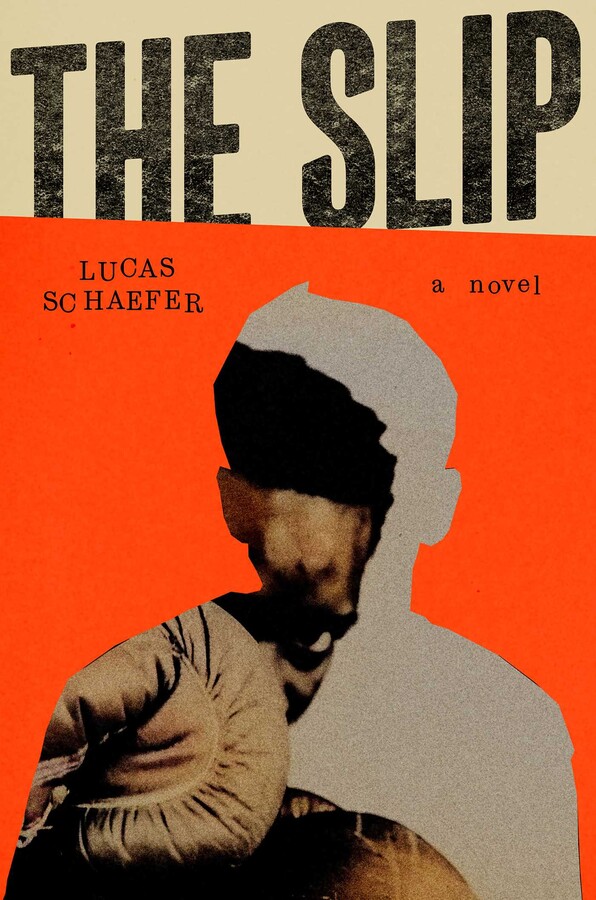Curated by ISABEL MEYERS
In the June edition of Friday Reads, our Managing Editor and two of our volunteer readers recommend books that have refreshed and engaged them as the start of summer creeps closer. Read onward for reflections on translation, the lasting and often problematic legacy of novels, and the importance of maintaining hope.
Recommendations: Whereabouts by Jhumpa Lahiri, Without a Map by Meredith Hall, Lolita in the Afterlife edited by Jenny Minton Quigley
Jhumpa Lahiri’s Whereabouts; recommended by Lauren Knight (Volunteer Reader)
Hearing Jhumpa Lahiri speak at a virtual book launch event for Whereabouts, with Megha Majumdar, her modesty on writing the novel first in Italian, then translating herself from Italian to English struck me. I’m in awe of her mind not only processing the three languages she knows but her ability to form such elegant phrases in a language she learned later in life. As I’m reading, I wonder how the phrase would read in Italian. Her observations in this quiet burn of a novel are striking for how well Lahiri captures and captions, noticing the small moments of the life—some beautiful and some cruel—of a woman in Italy going about her daily wanderings and encounters. She grapples with her parents’ mortality and her childhood and upbringing as an only child, as well as the prospect of an affair. The unnamed “Signora” is a professor, a writer and someone who has never left the city she grew up in. The chapters are titled by place, ranging in specificity and physicality from “In August,” to “At the coffee bar.”
I kept returning to a line from the chapter “In the Pool,” where after overhearing the conversations of women who frequent the local pool, Lahiri leaves the reader with the punch of one of the women addressing the narrator. The novel includes minimal conversation between the narrator and other people so in this moment we’re drawn out of the observer status those of us who go through life with a writer’s mindset know so well. It’s as if the narrator has been yanked out of her eavesdropper’s paradise.
“The old woman closes her purse and politely says goodbye, but before leaving, as I’m drying my limbs, she says, ‘I’ve got a bunch of dresses in my closet that would look good on you. They’re adorable but I can’t wear them anymore. Would you like them, so they don’t go to waste?’ She adds, without skipping a beat, ‘It’s been decades since I’ve had a waist.’” (Lahiri, 42-43)
As I finish reading this section, a little boy, unsteady on his feet in my apartment’s courtyard, putters toward me with the biggest grin, and I wave. This feels like an extension of the narrator’s interactions. I recommend you enjoy the novel outside with a light breeze breaking the summer heat, feet perched on a chair, preferably somewhere you can make your own soft observations. But if not, you can still marvel at Whereabouts, much like Lahiri’s Interpreter of Maladies, anywhere and appreciate Lahiri’s gentle and sometimes harsh observations of other people (like “the detritus left by his children” (88)). Her focus is intense in a way that makes a reader question if they’ve been going about the art of observation all wrong. I kept returning to the moment where the narrator describes the man staying in the neighboring hotel room at a conference: “He strikes me as a man at peace with himself but at odds with the world, the type that dwells on things too much. But his large eyes are tender, tinged with sadness” (53).
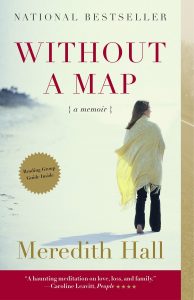
Meredith Hall’s Without A Map; recommended by Natasha Ayaz (Volunteer Reader)
In a year flooded with grief and clouded with questions, the struggle for survival, both physical and spiritual, has permeated everything. If, like me, you’ve found yourself navigating change in the dark lately, then this is the read for you. Hall leads us across the unsteady terrain of her most traumatic memories with astonishing generosity of heart. Hers is an arrestingly raw story about becoming, against all odds, more compassionate, insightful, and gracious after suffering.
In 1965, Meredith Hall is a blameless, bookwormish sixteen-year-old, beloved by the parents around which her safe world revolves. Then, abruptly, one encounter tears a hole that unravels the entirety of her reality. She gets pregnant, and is brutally, shockingly rejected by her idolized mother and father. The events that follow—the forced adoption of her infant son, an era of ascetic wandering from Amsterdam to Syria, an eventual marriage in adulthood—are soaked with the sorrow of that original betrayal. Hall’s constant longing for her lost son is viscerally blue, and her devastation at being forsaken by her own family is gut-wrenchingly human. She forges a path to forgiveness that is equalizing, unorthodox, and utterly inspiring. Through her life story, which glimmers with poetic parallel and divine coincidence that restore faith in the universe, she proves to us that the human heart is capable of love more enduring and expansive than any hurt.
We are all looking for directions, searching madly for signage to lead us from chaos to discovery, from pain to revelation. What Hall offers us weary travelers is not a map, but something infinitely more valuable: hope.
Lolita in the Afterlife: On Beauty, Risk, and Reckoning with the Most Indelible and Shocking Novel of the Twentieth Century, edited by Jenny Minton Quigley; recommended by Emily Everett (Managing Editor)
I wonder if I am the only person to read Lolita in the Afterlife without ever actually reading Lolita. It’s an embarrassing admission—who hasn’t read Lolita?—but this collection of essays is full of such admissions. Which shouldn’t be surprising, considering how Lolita came to be—suggested to publisher Walter Minton by his showgirl mistress. Editor Jenny Minton Quigley tells this story of her father, and more, in the book’s introduction. Quigley has assembled a true A-list of writers here. That’s why I couldn’t resist reading this book, even without having read Lolita myself. I had to know what Alexander Chee, Lauren Groff, Morgan Jerkins, Roxane Gay, Jim Shepard, and Susan Choi would say—and I wasn’t disappointed.
Writers writing deeply about the experience of reading is always fascinating to me, and the readings here are close, down to the line, but also broad and cultural and emotional. Essays look at the way Lolita influenced literature and societal norms, but also pop culture—movies, fashion, chat rooms. Writers wrestle with what it means to love a book about child abuse, whether its possible to separate the beauty (the prose) from the beast (Humbert). Whether its okay to teach Lolita, to watch the films, to enjoy them. More than anything in this collection, I felt grateful for the space these writers made—for nuance and mess and complexity and complication, for being imperfect and feeling imperfectly, allowances which feel less and less a part of the dialogue around art and literature these days. Lauren Groff wrestles with an early story of hers that she now finds problematic, writing, “I have deepened as I’ve lived, and a writer is a person who, for better or worse, slowly develops her soul in public. Evolution can be terribly painful; so much is lost along the way.”
In her essay “Badge of Honor” (published in The Common), Susan Choi admits that she avoided rereading Lolita for years. “Regardless of my careful analysis, of all those Post-its left over from my qualifying exams back in grad school, regardless of all my knowing, I was still, when inside the book (which is to be inside Humbert), rendered blind. … I’m unable to resist his magnetism.” I suspect this might explain why I too have kept away from the book: avoiding the blinding seduction that I, with all my wits about me, would still find inescapable.
